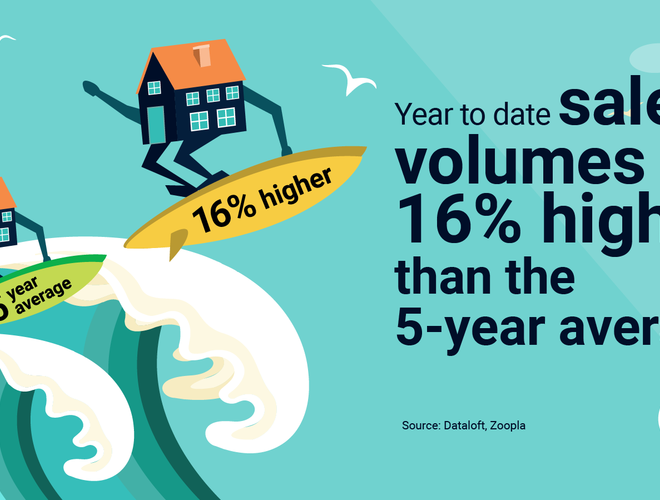We wanted to provide you with an important update on the Renters’ Rights Bill, which is currently progressing through Parliament.
While the Renters’ Rights Bill has not yet become law, and there remains a fair amount of discussion and amendment in Parliament, the key principles are now largely understood. The exact implementation timeline is still to be confirmed, but there are several important elements to be aware of that could affect your property or plans in the near future.
The Government’s Renters’ Rights Bill represents the most significant reform to private renting in over three decades.
While the changes are wide-ranging, they are designed to make the sector fairer and more consistent and professional landlords who already manage their properties responsibly will be well placed to thrive under the new rules.
Below is a summary of the key changes and what they mean for you.
- End of Fixed-Term ASTs
- The Bill will abolish Assured Shorthold Tenancies (ASTs) and introduce a single system of periodic tenancies.
- When the legislation takes effect, all existing ASTs whether fixed-term or periodic will automatically convert to periodic tenancies.
- Tenants will be able to give two months’ notice at any time.
While tenants will gain greater flexibility to end their tenancy with two months’ notice, evidence shows that most do not move frequently. According to the Government’s English Housing Survey, the average private tenancy lasts around 4.3 years, and 70% of tenants leave only when their circumstances change. This means that, although the structure of tenancies is changing, most tenants will still prefer stability particularly where the property is well managed and maintained.
- Possession Rights and Ending a Tenancy
- Section 21 “no-fault” evictions will be abolished.
- Landlords will instead use Section 8 grounds for possession, which are being expanded and clarified.
The new Section 8 process is clearer and fairer. Landlords will retain strong legal grounds to recover possession in genuine circumstances, with a more transparent framework to rely upon.
- Rent Increases
- Rent can only be increased once per year via a Section 13 notice, with two months’ notice to the tenant.
- Rent review clauses in tenancy agreements will no longer apply.
This provides a transparent, consistent process for adjusting rents, allowing landlords to plan annual reviews with confidence and fairness.
- Decent Homes Standard
- All private rented properties will need to meet a new, legally enforceable Decent Homes Standard, ensuring properties are safe, well maintained and free from serious hazards.
Landlords who already maintain good-quality homes will find they are ahead of the curve. This standard will help drive out non-compliant landlords, levelling the playing field for professionals.
- Pets and Fair Access to Tenancies
- Blanket bans on pets and refusals based on children or benefit status will no longer be allowed.
- Landlords must consider pet requests reasonably, although legitimate reasons for refusal will still be valid.
This broadens the tenant pool and can attract longer-term renters. Many pet owners make excellent, stable tenants who take good care of their homes.
- The Ombudsman and PRS Database
- All landlords will be required to join a new Private Rented Sector (PRS) Ombudsman and register on a PRS Database.
This will promote professionalism and transparency in the sector, helping good landlords stand out and build stronger relationships with tenants.
- What Landlords Should Be Doing Now
- Be cautious about offering long fixed-term renewals, as all tenancies will convert to periodic once the Bill is in force.
- Consider shorter-term or rolling agreements to maintain flexibility.
- Avoid taking large up-front rent payments in advance, as the Bill proposes to restrict or cap these.
- Review your property portfolio to ensure compliance with the Decent Homes Standard.
- Keep thorough records of certificates, maintenance and communications.
- Maintain strong relationships with tenants - happy tenants are far less likely to leave, even with increased flexibility.
- Other Points to Be Aware Of
- Tribunals: Tenants will have easier access to challenge rent increases or poor practice. Keeping thorough records and documentation will be essential to defend any claims.
- Local authority powers: Councils will have greater powers to fine, issue banning orders, and enforce compliance against non-compliant landlords.
- Awaab’s Law: Stricter legal timeframes will apply for dealing with damp, mould, and safety issues, requiring prompt action and clear repair records.
- Advance rent payments: The Bill will restrict pre-tenancy or multi-month rent payments. Landlords will not be able to request rent before the tenancy begins, and advance payments are likely to be capped (for example, to one month’s rent).
- Notice to sell or re-occupy: Landlords wishing to sell or move into their property must use the new Section 8 grounds. A four-month notice period will apply, and these grounds can only be used once the tenancy has been in place for at least 12 months.
- How Collinson Hall Will Support You
At Collinson Hall, we understand that legislative change can feel daunting. Our team is already preparing for the transition to ensure that both landlords and tenants are fully supported.
We will:
- Keep you informed as new details are confirmed.
- Review and update tenancy agreements so they remain fully compliant under the new law.
- Advise on rent reviews, Section 8 possession grounds, and notice procedures to protect your interests.
- Support compliance with the Decent Homes Standard and future PRS registration requirements.
- Provide tailored guidance on how the reforms affect your specific properties and tenants.
Our aim is to make the process as smooth as possible, giving you the confidence that your investments remain well managed and legally secure.
In Summary
Whilst the Renters’ Rights Bill marks a major shift in how private renting operates, it also simplifies processes, strengthens legitimate possession grounds, and rewards responsible landlords.
By working with Collinson Hall, you can be confident that you will be guided through every step of the transition ensuring your properties remain compliant, competitive and profitable in this changing landscape.





